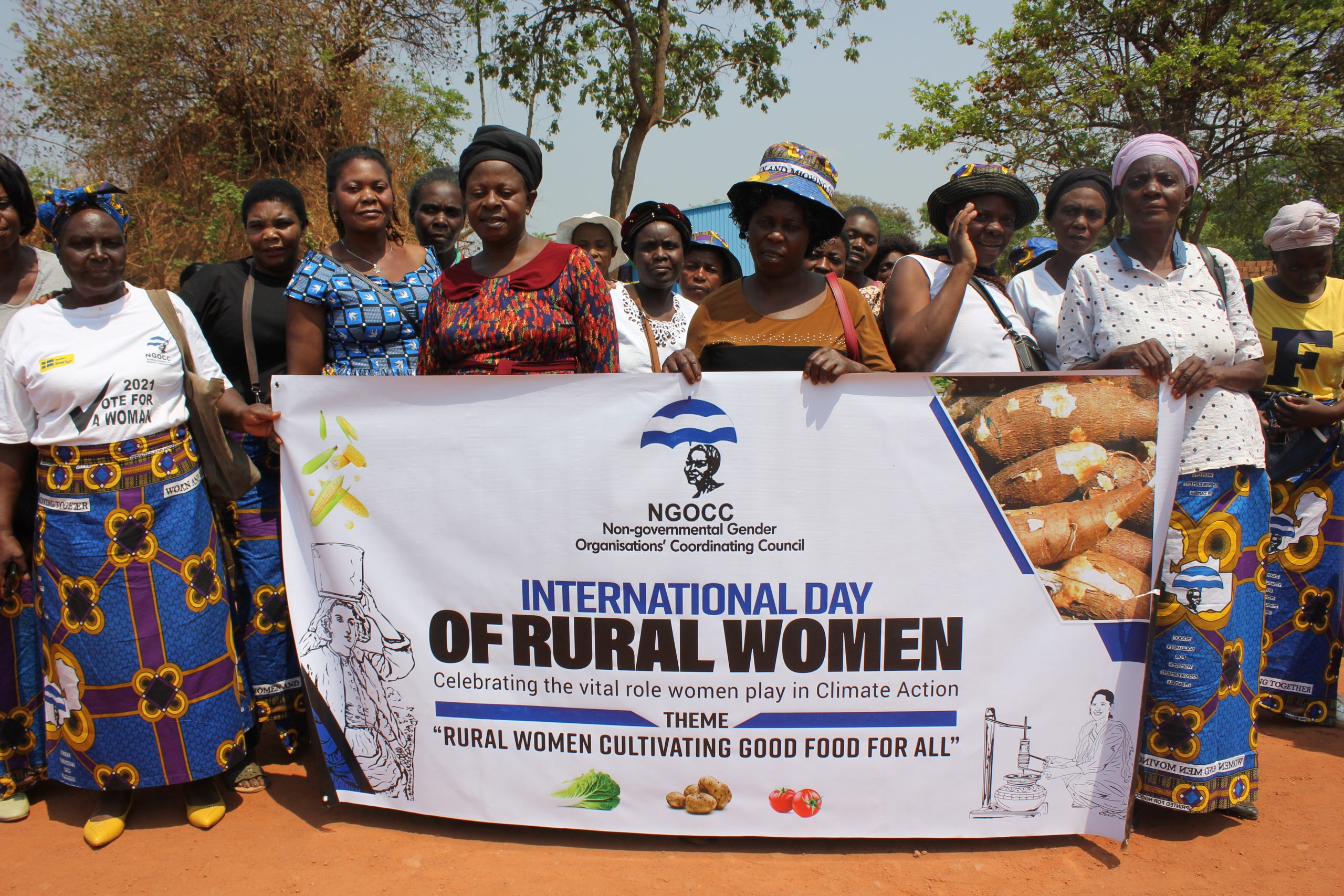By John Mubambe
Women of Solwezi District celebrated the 2023 International Day of Rural Women with a strong call to cultivate good food for all.
Mbonge Secondary School in Chief Kapijimpanga’s Chiefdom was the location of a march past, songs, dances, drama and a food exhibition that ended in some groups awarded for outstanding performances.
World Rural Women’s Day takes place each year on October 15, but this year the women in Solwezi opted to celebrate it on Friday, October 13 because October 15 fell on a Sunday, which is a day of attending church services.
The day was celebrated under the theme Rural Women Cultivating Good Food for All to justify the recognition of rural women’s work to advance communities in North-Western Province and Zambia as a whole.
Young Christian Education Club of Zambia (YCECZ) women representative Robbina Kayombo appealed to Government leaders to be more inclusive and to apply the bottom-up approach to overcome personnel gaps in rural areas and meet the gender inclusion demand of Vision 2030, “We are appealing through our leaders of the land, to our government and international community, to honour the obligation of providing rural women with necessary equipment and other empowerment meant to improve their livelihoods.”
YCECZ Director of Programmes, Reverend John Lumayi, happy that women and girls valued the Day by being in attendance as active participants, said YCECZ had partnered with the NGOCC, Kansanshi Mining Plc, YWCA and Solwezi Municipal Council in the preparation for the event.
Sub-Chief Ng’ombe of Kapijimpanga Chiefdom in Solwezi urged Government to consider rural women for farm equipment loans so they graduate from being subsistence to commercial farmers.
“Women in rural communities make an immense contribution to sustainable development and for this reason, they should be supported by Government and other stakeholders in financing their requirements in the context of agriculture and rural enterprises,” she said.
She went on to state that rural female farmers would appreciate it if the government provided tangible solutions to the lack of economic empowerment in farming by spearheading land mechanization projects such as tractors and animal draught power provision.
Sub-Chief Ng’ombe further appealed to the state to work with the electricity utility company to extend the rural power network to Mbonge village communities where electricity was needed to serve the double purpose of improving people’s lives and mitigating climate change.
She thanked the organizers of the International Day of Rural Women for choosing to hold it in Mbonge where rural women would be inspired to achieve positive transformational economic, social and environmental changes required for sustainable development.
In a vote of thanks, Mbonge Combined School Head Teacher Grace Ngolofwana said the event had changed the mindset of women of Mbonge community who were now set for sustainable development after hosting the international event for the first time.
Ngolofwana said the women of Mbonge were up to the tasks of poverty reduction, natural resources management, adopting climate-resilient agricultural approaches, and preserving biodiversity and productivity.
She was optimistic that the government would empower Mbonge rural women with skills training and agricultural machinery so that they also excel in entrepreneurship like their urban counterparts.
Kimale Ward Councilor Adrian Nkolomba, in whose ward Mbonge is located, described the International Day of Rural Women held at Mbonge as a big and significant event which engaged rural women and girls who can lead the transformation and agency of change in all aspects of their daily lives.
Nkolomba noted that empowering a woman in a rural area was synonymous with empowering the whole nation as rural women are key players in poverty reduction, sustainable development, and food and nutrition security.
He commended Mapesho Women Club for scooping the top award, followed by Mbonge Adult Literacy and Kimpilinte Women Clubs in second and third place respectively out of all the women clubs, cooperatives, NGOs, churches and private sectors who exhibited their products and services.








